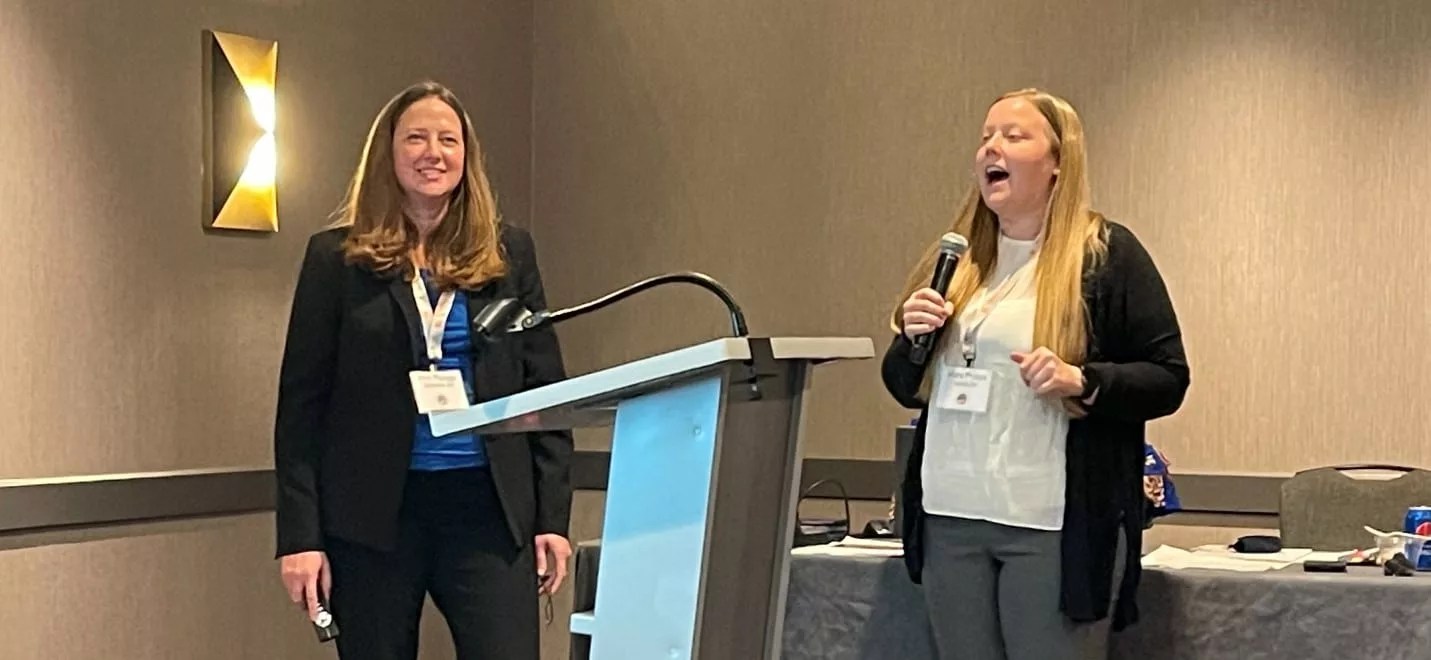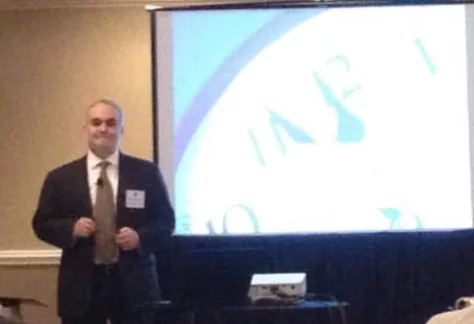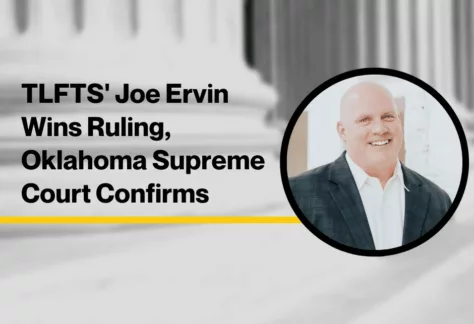Each of the eight lawyers at The Law Firm for Truck Safety and one of our paralegals have participated in and continue to educate other law firms throughout the country this fall. This article starts with the first event from September 22, 2021. This autumn intensive teaching time continues.
Seven different legal organizations have hosted and continue to host various continuing legal education opportunities where our law firm spoke or presented papers. These organizations are:
- Academy of Truck Accident Attorneys
- Oklahoma Association for Justice
- Ohio Association for Justice
- Nevada Justice Association
- The Melvin M. Belli Association
- American Association for Justice Trucking Litigation Group
- Texas State Bar
The Academy of Truck Accident Attorneys
We kicked off our fall schedule with the annual symposium for the The Academy of Truck Accident Attorneys (ATAA) in Austin, Texas.

ATAA Symposium
Over 300 attorneys from 37 states and the District of Columbia paid to learn from a faculty of attorneys on the best practices for handling truck crash litigation. The Law Firm for Truck Safety was fortunate to have 7 of our team members (Andy Young, Michael Leizerman, Rena Leizerman, Matt Wright, Joshua Leizerman, Amy Papuga, and Mara Phillips) lead the way with the most faculty members teaching at this year’s ATAA Annual Symposium. ATAA also invited four of our firm’s team members (Michael Leizerman, Joe Ervin, and Mara Philips) to moderate various programs offered at this national event.
The cast of characters – potential witnesses in your trucking case.
Andy Young led off the three-day national symposium as the first speaker. His lecture and accompanying materials focused on taking depositions of independent witnesses, those responsible for employing a safe truck driver, and those responsible for ensuring that the truck driver has safe equipment. He played several depositionA witness's sworn out-of-court testimony. clips from a recent case he took to trial in order to highlight issues of inadequate training by a truck company’s management team.
Recognizing and resolving ethics issues in trucking cases.
Rena Leizerman lectured on the unique issue of misprision of a felony, and then moved to rapid-fire professional responsibility topics, including technological competence, ethical use of social media, establishing ethical co-counsel relationships and settlement negotiations. Rena also provided a follow-up professional responsibility talk about the problems of alcoholism, addiction, and mental health in the legal profession. Her lectures helped lawyers throughout the country achieve their requirements to participate in a certain number of continuing legal education credits for ethics and professional responsibility.
Referrals & Co-Counsel
Involved in a Crash?
No other law firm knows trucks quite like us. Our trucking law expertise and trial experience allow us to win multi-million-dollar results year after year.
Our team of truck accident attorneys works tirelessly to help your family find justice in the wake of a catastrophic truck crash.
Referrals & Co-Counsel
No other law firm knows trucks quite like us. Our trucking law expertise and trial experience allow us to win multi-million-dollar results year after year.
Involved in a Crash?
Our team of truck accident attorneys works tirelessly to help your family find justice in the wake of a catastrophic truck crash.
Overcoming the sudden emergency defense.
Joshua Leizerman gave a talk about a truck driver claiming the defense of sudden medical emergency. Sudden medical emergency is a common law doctrine that the driver of a vehicle who experiences a sudden and unforeseeable medical emergency resulting in a crash is not chargeable with negligence. He gave a practical example of how to defeat this defense especially when a driver claims he or she had a coughing fit or experienced “cough syncope.” Cell phone data and other in-cab technology can be used to prove that the driver did not actually experience a medical issue moments before the crash.
Client hardships and telling their story.
Andy gave a second talk that went into specific experiential techniques our law firm has used to provide evidence of client hardships. A client’s story can be highlighted in the courtroom by bringing the jury into the client’s home. Andy provided another example of how clients use their grief for good by turning them into truck safety advocates by publicly sharing their stories with lawmakers to prevent tragedies from happening to others through legislative and regulatory initiatives. He encouraged law firms across the country to participate in the “Vision Zero” global initiative as our law firm has done as a partner of Vision Zero Cleveland.
Overturning bad evidence.
Amy Papuga taught attendees strategic ways to fight, supplement, and overturn police crash reports that did not fully develop and consider the intricacies of safely driving a semi-tractor. Five of our attorneys, including Amy, hold a “Class A” Commercial Drivers’ Licenses (CDL). A “Class A” CDL allows our attorneys to legally drive tractor-trailers to further understand the dynamics of a specific crash. Through Amy’s experiential knowledge of driving a tractor-trailer, attendees learned how to accurately issue spot negligent truck driver behavior. She identified sections of the Federal Motor Carrier Safety Regulations and the CDL manual to assist attendees on ways to improve how they handle truck crash cases.
Traumatic brain injury and client treatment.
Mara Philips, a paralegal in our law firm, is the co-chair of the ATAA’s paralegal program. She co-taught attendees how to properly handle truck crash cases that result in traumatic brain injuries. A permanent brain injury forever alerts the lives and livelihoods of many of our clients. Brain damage is not something that can be easily understood by a jury by simply pointing to an x-ray showing, for instance, a bone fracture. Brain damage cases are particularly complicated because they require rigorous follow-up gathering all medical records and putting together a team of experts to help prove the extent of the injury. To properly prove a client’s brain injury requires a depth of experience that goes beyond just about any other type of injury.
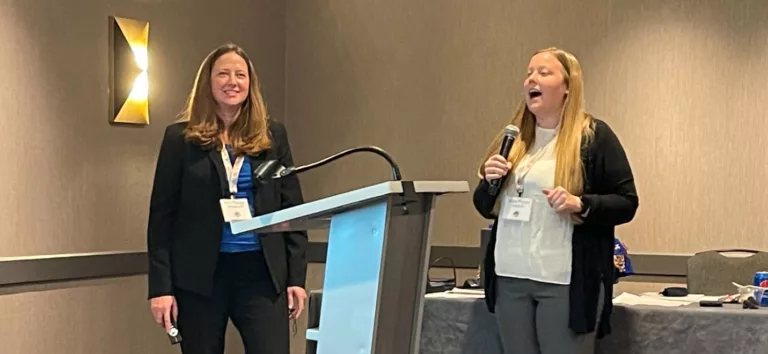
Amy Papuga and Mara Phillips
Broker / shipper liability.
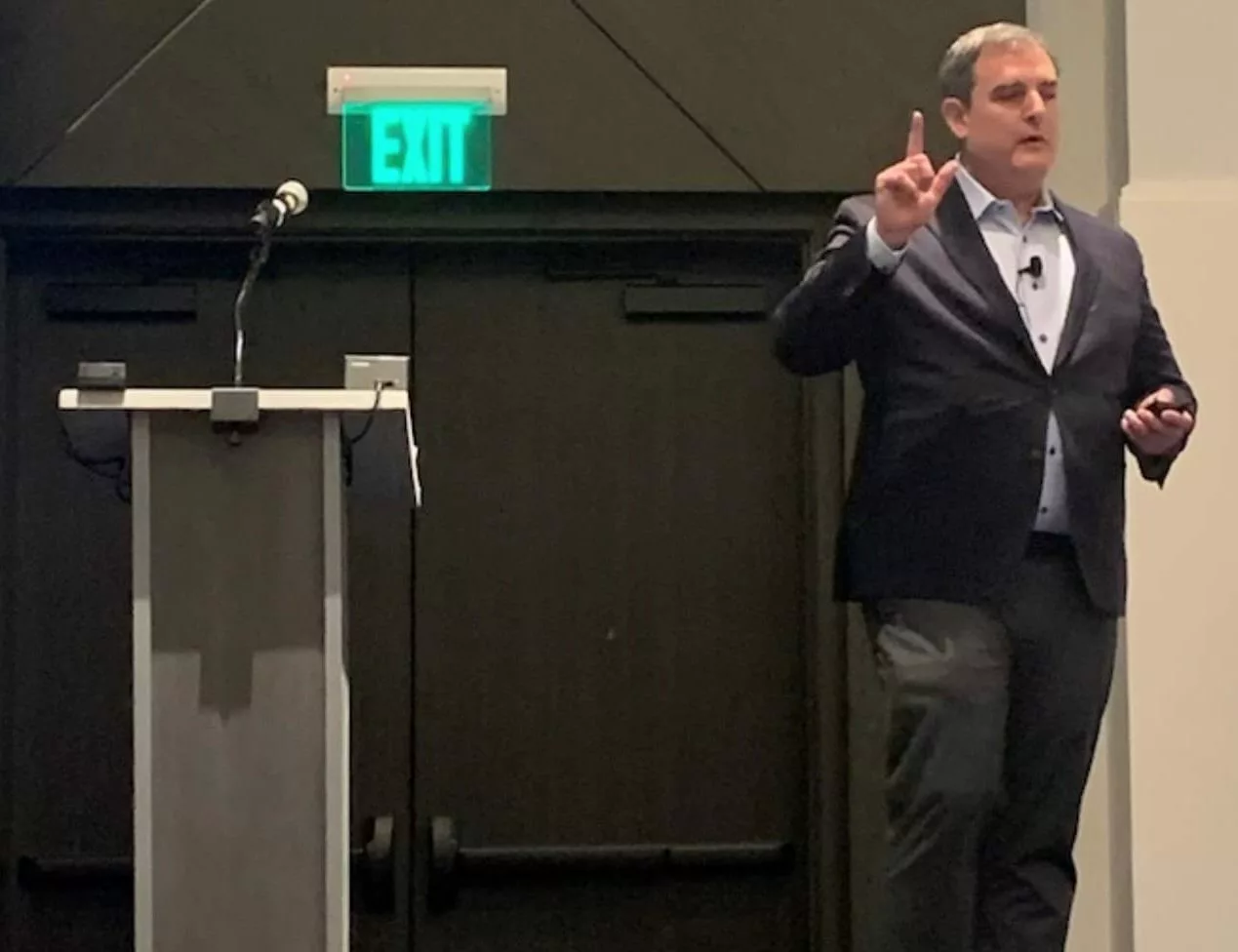
Matt Wright
Matt Wright taught attendees that claims for relief against brokers and shippers include: (1) negligent loading/unloading of cargo (which includes the duty to train and supervise employees); (2) common law agency and vicarious/imputed liabilityLegal responsibility for one's acts or omissions. In negligence cases, liability includes proving negligence, proving causation, and resulting damages.; (3) negligent hiring and selection of independent contractors; and (4) statutory employment. Matt highlighted the importance of finding the hidden motor carrier. If a larger motor carrier was tendered and accepted cargo under its motor carrier authority, it cannot claim broker status by “assigning” a load to another motor carrier. The larger motor carrier is liable for the acts of the hired driver, particularly when it uses equipment it does not own to transport the cargo. These cases usually arise when profit-driven, sophisticated transportation companies hire not-so-sophisticated or incompetent trucking companies to haul cargo and as a result someone gets killed or seriously injured.

Matt Wright
Matt Wright taught attendees that claims for relief against brokers and shippers include: (1) negligent loading/unloading of cargo (which includes the duty to train and supervise employees); (2) common law agency and vicarious/imputed liability; (3) negligent hiring and selection of independent contractors; and (4) statutory employment. Matt highlighted the importance of finding the hidden motor carrier. If a larger motor carrier was tendered and accepted cargo under its motor carrier authority, it cannot claim broker status by “assigning” a load to another motor carrier. The larger motor carrier is liable for the acts of the hired driver, particularly when it uses equipment it does not own to transport the cargo. These cases usually arise when profit-driven, sophisticated transportation companies hire not-so-sophisticated or incompetent trucking companies to haul cargo and as a result someone gets killed or seriously injured.
Using core truths to identify what really matters.
Michael Leizerman teaches that we need to be mindful of each of the following core truths: physical, emotional, logical, motivational and Zen. The “physical core” demonstrates how attorneys present evidence in the courtroom about what happened in the case. What did the crash look like, sound like, and smell like? The “emotional core” explores the emotions in the case so the jury can truly feel what happened too. The “logical core” helps the attorney clearly explain the facts and standards of what happened so the jury can think through the case and come to a logical conclusion. The “motivational core” provides meaning to what happened in the case so that the jury is motivated to render a just verdict. The “Zen core” addresses how the attorney can engage with the jury to bring the case alive right here and now.
Advanced thoughts on identifying and arguing damages.
Michael Leizerman also co-taught a second topic that allowed attendees to do a deep dive in the “emotional core” of the case. The word “damagesIn a civil lawsuit, money designed to compensate an injured person. This includes economic damages (measurable financial loss like medical expenses) and non-economic damages (categories like pain and suffering or loss of love.)” should not be used in trial to describe the life altering results left after a truck crash. Michael helped attendees to become mindful of how to help the jury “feel the case” from our clients’ perspective. Attorneys should focus on what was actually “taken” from our clients. The case is not as simple as identifying the medical diagnosis, but rather experiencing the loss of the debilitating injuries that have forever changed our client’s lives . It is important to show and not tell the jury the emotional reality of the case. To do so effectively is to actively learn our client’s story with the jury as if for the first time so that the jury truly feels the reality and full impact of the case.

